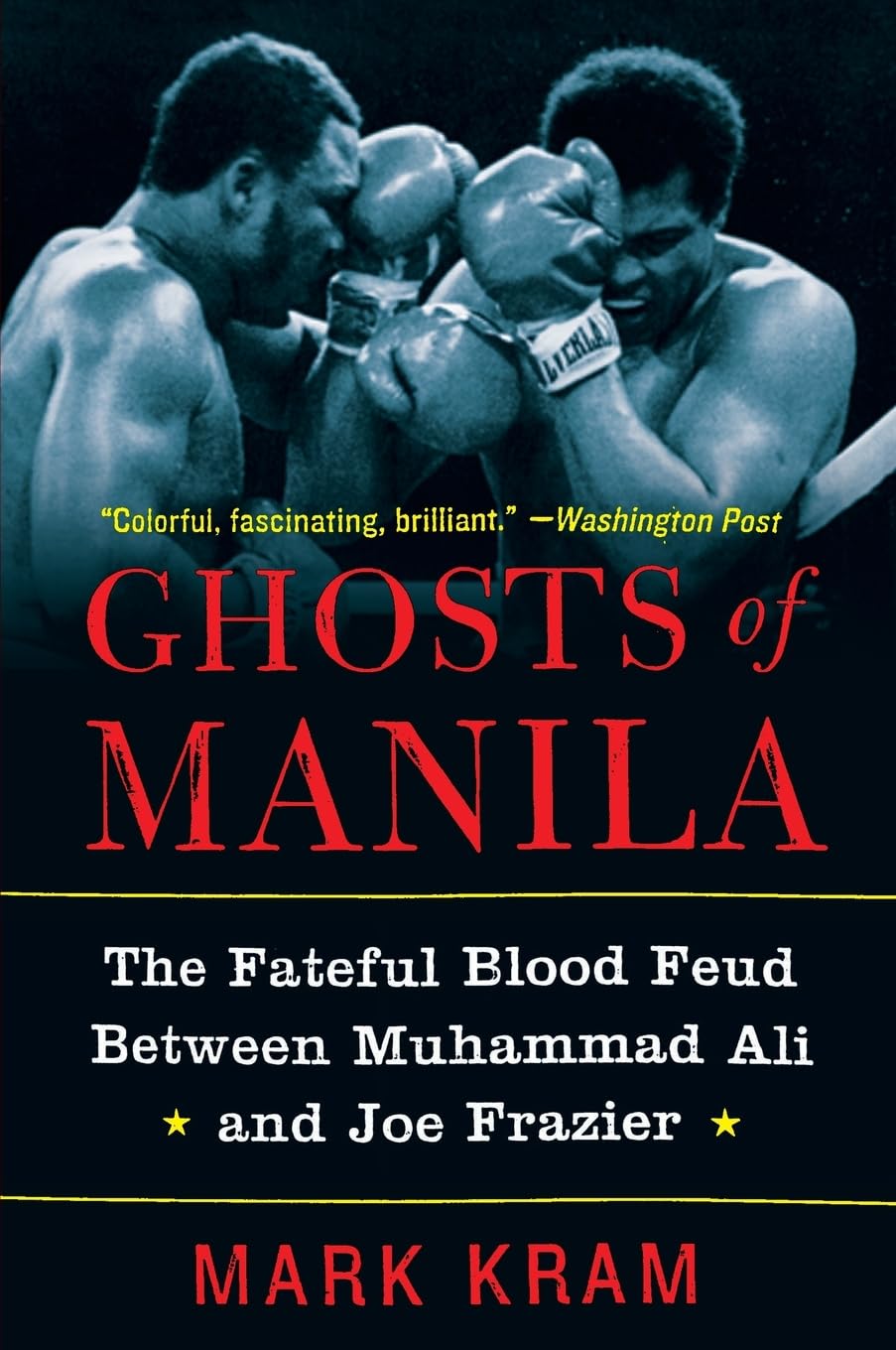

Full description not available
C**C
A classic of sports journalism, even with its flaws
As others have said, this book is a classic. While it is a flawed classic, its value outweighs its imperfections. Mark Kram was a writer on Sports Illustrated during SI's glory years of the Sixties and Seventies, when SI had assembled an unparalled staff of breathtakingly talented writers such as Kram and Frank Deford, who showed that sportswriting on deadline could be art, not just a commodity. Kram was also something else, as rare in his own time as today; a brutally honest journalist prepared to challenge prevailing myths and narratives. In Ghosts of Manila Kram portrays Ali -- from years of intimate first-hand observation -- as essentially two things: first, the greatest heavyweight boxer of the modern era (post-World War II), and second, a hypocrite and ignoramus who was used by others who were vile, but Ali used them back. Among those who used Ali shamelessly were Kram's fellow journalists, for whom he aims some of his most unflinching contempt. Kram dismisses most reporters who covered Ali as nothing more than groupies who wanted to be part of the Ali myth so were complicit in fabricating it. In particular, Kram provides devastating critiques of Howard Cosell and Bryant Gumbel, both of whom Kram alleges cynically and dishonestly used Ali for their own career advancement. The only criticism I have of this remarkable book is that Kram's writing, while often lyrical in its beauty, at times descends into a Faulkneresque stream of consciousness that is more unintelligible than beautiful. As a literary artist at the top of his game, Kram probably resisted a strong editor, but he could have used one. I don't want to overemphasize this point, however. This book is a classic of sportswriting and should be read by anyone who wants a true insider's view of the world of big-time boxing during an historic era, the Era of Ali. It should also be read by anyone who admires a journalist who is not afraid to say the Emperor has no clothes, even when the journalistic herd is leading the parade and shouting the loudest hosannas.
D**N
Introspective Book
The book was well written; and contained a lot of unknown insight into Ali, Frazier and the competitive bond between them. The three fights were covered in highlight form, but more emphasis was given to the impact the fights had on each man. My only drawback was there was not enough of Joe Frazier in the book. While Ali seem to have the top billing over Joe, Joe brought a lot of character and personality to the relationship. I felt the book was more Ali-centric. I admired both as fighters so this is a small issue. Joe does have several books published about him, so those can always be consulted to get a deeper look at Joe Frazier.
O**S
Great Book by a Great Sportswriter
Sportwriters can tell you those among them who were the princes of the written word, and Mark Kram stands at the top of the list. Kram's writing is so excellent, so pure, that reading this book should be included in any class for aspiring sports journalists.Kram isn't concerned about his reputation, only the truth as he saw it, and the result is the greatest book on boxing ever written.Covering boxing for SI in the 60s and 70s, Kram knew both Muhammad Ali and Joe Frazier and their camps inside and out. Kram's astute takedown of Ali is this: Ali was about Ali. In Kram's words, "Seldom has a public figure of such superficial depth been more wrongly perceived--by the right or the left." Ali's turn to the Muslim faith is shown convincingly to be for Ali's PR gain in the countercultural 60s and the Muslims PR and political gain. Each used the other without much religious devotion or conviction. And in Kram's eyes, that's the real tragedy. Ali was so talented, so pure in the ring that he didn't need the sideshow.Kram is much more sympathetic to Frazier, particularly pointing out how unbelieveable it was that Ali would call Frazier an uncle Tom. Frazier had helped Ali during Ali's imprisonment and his reward was open mocking and racial ridicule. Frazier would never forgive Ali the rest of his life for such a betrayal.Of particular interest is Kram's appraisal of the press that was taken with Ali. Bryant Gumbell is described as a mediocre talent who unfairly went after Frazier for his own advancement. Howell Cosell, although not as talentless as Gumbell in Kram's eyes, is more concerned with Howard Cosell than anyone else and Ali helped him with that promotion.The actual fight is described rightly as a battle to the death and that left each man a shell of himself. The heat, the press, the viciousness of the fight make it a night never to be forgotten.
Trustpilot
3 weeks ago
2 weeks ago